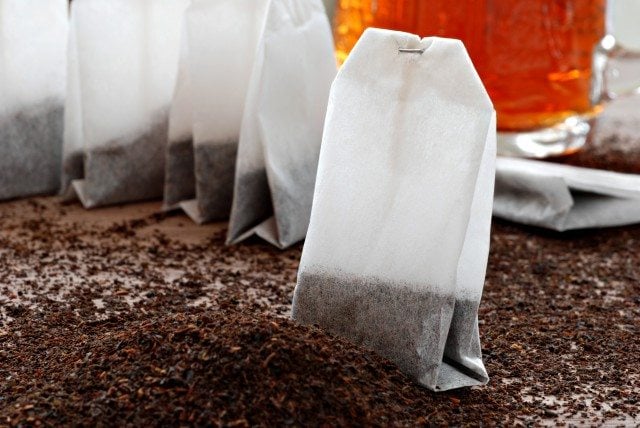Experts at Tetley Supers have worked with Futurologists to map the evolution of UK’s favorite beverage over the next 10 years.
Based on forecasted consumer trends of 2026, the report entitled Future of Tea predicts a super future for the everyday cuppa, including Remedy Teas: teas enhanced with medicine; Hor-Tea-Culture: grow your own tea; and Tea-Total Bars: to rival coffee shops and pubs.
The growth of the Internet of Things (IoT) and wearables within the home will see the rise of ‘Tea Tech’, enabling personalized blends tailored to individual health requirements.
Tea will transcend its liquid form as new product formats, from tea sprays to tea tabs, emerge to meet the needs of an increasingly time-poor and convenience-hungry society.
According to the report, precision, optimization and augmentation will define the nation’s attitude towards health in 2026.
This, combined with the rise of advanced sensors and tea technology, could see the cuppa evolve at a faster rate in the next 10 years than it has in the 350 years since tea was first enjoyed in the UK.
Tetley’s top five predictions for the future of tea include:
1. Remedy teas to become the biggest breakthrough in healthy teas
In 2026, increasing demand for functional food and drink with clinical health benefits will take the significant innovation seen in recent years to the next level.
Containing antioxidants and aiding hydration, tea has long been renowned for its health-giving properties.
The 2015 launch of Tetley Super Teas infused with vitamins for health benefits, including Heart, Immune and Boost, took this to the next level.
The year 2026 will see the emergence of Remedy Teas: daily cuppas enriched with medicines, from painkillers and antibiotics to contraceptives.
The future could see ready-made blends for a variety of ailments, including Hangover Tea with added antacids and caffeine, Youthbrew Tea with collagen, Hair Restore Tea with minoxidil (to prevent hair loss), and Virali-Tea with erectile dysfunction medicine (the cuppa to get you uppa!)
2. ‘Tea Tech’ to deliver personalized cuppas based on individual vital signs
By 2026, homes will be embedded with advanced sensors, smart devices and wearable technology that will continuously monitor the state of our bodies and minds.
The report finds that a third of UK consumers will be actively tracking their health data and – with an increasing appetite for personalization – using this data to create bespoke tea blends.
Breakthrough tea-making devices, dubbed Totali-Tea Devices in the report, will receive health data and monitor our vital signs to serve up the cuppa we need, exactly when we need it.
It is the Teasmade of 2026.
For example, the Totali-Tea will receive one’s sleep pattern from his/her wearable device and have a cup of tea, with extra caffeine and added vitamin B6 to reduce tiredness, ready for when he/she wakes up.
In the kitchen, the programmable Tea Tap will produce a steaming cup of perfectly brewed tea at the touch of a button, giving tea-lovers the product they crave instantly, just the way they like it, without the need for a kettle.
3. New tea formats will take tea beyond its liquid form
Tea will transcend its liquid form as the sector sees advances in product concepts and formats as game-changing as the arrival of the tea bag itself.
According to the report, the intensifying needs of time-poor, health seeking and convenience-hungry UK consumers of the future will result in a growing market for products such as Tea Shots.
Providing an intense burst of tea-on-the-go, Tea Sprays, Tablets and Strips are set to be available within the next decade.
By 2026, tea lovers hungry for novelty will put the cups away and get the spoons out as products emerge such as Tea Jellies, Sorbets and Syrups in an array of exotic tastes and flavors.
4. The domestic blender
The growing ‘leisure upgrade’ trend – where consumers see food and drink preparation and consumption as an opportunity to learn – will drive interest in tea culture.
Traditionally reserved for trained Master Blenders, tea blending is an art that takes the quality characteristics from different tea regions and brings them together in harmony.
The year 2026 will see the rise of the domestic blender within the home.
They use smart tools and take advantage of the rising temperatures to grow tea plants for home blending and brewing.
They expertly fine-tune their own blend recipes using their knowledge and expertise to create the ideal growing conditions for the best leaves for their blend.
With this Grow & Blend Your Own Tea trend, tea blending and tasting could become as commonplace as wine tasting.
5. Tea Total Bars
While coffee shops have dominated in the 2010s, the report predicts that by 2026 Tea Total Bars may well become commonplace.
Tapping into the growing tea-total market, they will serve everything from traditional blends to tea-based mocktails in a variety of exotic flavors to drink, eat or inhale as desired.
Tea Total Bars will also offer consumers the chance to learn on-site about tea tasting and blending, providing opportunities to both upskill and socialize.










